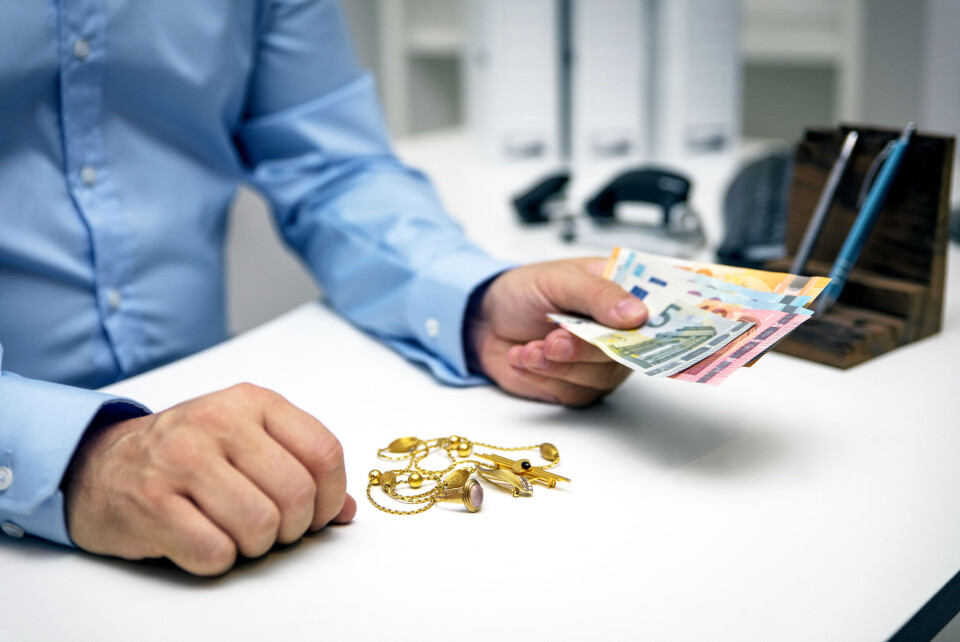-
France’s wild garlic season is here – but foragers should beware toxic lookalikes
Spring brings the fragrant plant to woodlands nationwide. We explain what to look out for
-
Record river levels, more evacuations: Latest on flooding in south-west France
Alerts are in place across five departments and residents in some areas are told to stay home
-
French second-home visa issues raised in House of Lords
British people experience an "expensive and bureaucratic process" to continue living in France
Boom in business at France’s ‘official’ pawnshops: How do they work?
The 49 shops are public institutions and are seeing a sharp rise in users

Rising inflation and interest rates in France have caused a boom at France’s 49 ‘official’ Crédit municipal pawn shops. We explain how they work.
What are the shops?
- The shops are public institutions, and municipal, with a state guarantee
- They offer an alternative to a normal bank loan for small amounts but often with an immediate decision and without the need to prove resources to repay the loan
- Known as a ‘prêt sur gage’ in French
- Their objective is not to make a profit or pay shareholders
- They offer money release in exchange for keeping hold of valuables. The interest rate varies according to the objects’ values and market rates but is usually around 5% a year
- More information on the shops can be found on the public service government website Service-public.fr (in French)
Where are they?
- Many major cities and towns have one
- There are 49 across France, including in Avignon, Bordeaux, Carcassonne, Grenoble, Lyon, Marseille, Nantes, and Paris
- See the full list of official shops, their addresses, and their opening hours (in French)
What must individuals bring?
- Individuals can bring valuables, such as jewellery, art, a watch or good quality musical instrument, and receive money for them
- Individuals must show a valid ID and proof of address, and sign a contract to confirm the loan. You do not need to show proof of income or other financial details
- The valuables are valued at 50-70% of their market value
- The valuables are weighed and considered according to a set of quality criteria, and compared to recent similar objects that have been sold
- For rare or very valuable objects, they may be considered by a specialist expert first
How do you receive the money?
- It can be in cash, cheque or bank transfer up to €3,000
- If it exceeds this amount, it will be paid by cheque or bank transfer, not cash
- The loan can be approved in less than an hour, depending on the object and amount
- For amounts in excess of €20,000, a credit committee must meet to approve the loan first
When can you get the valuables back and what are the repayment terms?
- Individuals remain the owner of the objects, and can pick them up at any time within two years, once they have repaid the sum they received plus the interest agred.
- If individuals do not repay the loan within two years (or the time stated on the contract), their valuables will be sold at public auction. The loan and interest will then be repaid and any remainder kept for the owner
- The valuables are kept securely in safes for the duration of the loan, or until being sold
- Loans of more than €3,000 cannot be repaid in cash or in a single lump sum
One woman, known as Jessica, told FranceInfo that she was pawning some of her grandmother’s jewellery that had been left to her at the official pawnshop in Toulouse. She said: “It’s my last resort to keep feeding my children and put petrol in my car.”
Director of the shop, Franck Paindessous, said that there have been 10% more people coming to the shop since the start of the year. It has made 6,000 loans since January, totalling €4million.
He said: “We are in a growth period for pawn shop loans. Currently, we’re seeing 80 people per day who come to get these loans. The average loan is €600. Usually, it’s gold jewellery, but sometimes it might be paintings, silver, or silk handkerchiefs.”
The director said that high levels of inflation meant that “needs were not being met” and so it was “compelling” for people to come to the shop to get a “quick and easy fix”.
It comes after inflation was confirmed at 4.8% in April, and food and fuel costs are rising due to shortages and the war in Ukraine.
Related articles
French inflation at 4.8% year on year to April
Inflation remains concern for 2022 no matter who is French President
The top 10 rising food prices in France… and five that are going down
Smartphones, hairdryers, vacuums: Food not only cost rising in France
























